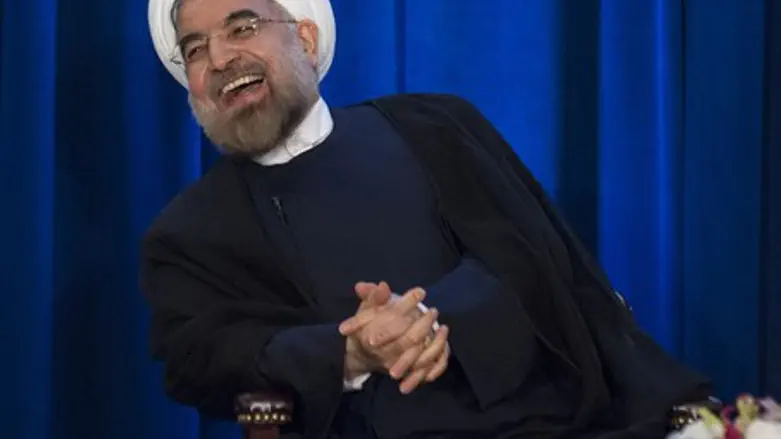
The US withdrew "red lines" with Iran long before the current round of nuclear negotiations began, according to a report released Sunday.
According to the Wall Street Journal, Washington helped expedite the release of four Iranian prisoners in 2012 and 2013 as part of a precursor to negotiations negotiated via a "wish list" Iran sent to the US in 2009.
Of those, it said, three had been convicted of sending arms or other materials to the Islamic Republic while sanctions were still being imposed on its nuclear program. Not all of them had completed their full sentences for their crimes, and one, scientist Mojtaba Atarodi, returned to Iran days after his conviction.
US officials reportedly worked with Oman to return the prisoners to Iran.
The Washington Free Beacon theorizes Tuesday that the prisoners were returned as part of a prisoner swap in 2011 to free four American hostages being held in Iran.
It also notes, however, that three additional Americans are still being held there in 2015 - and that if a prisoner swap is not made explicit in the nuclear deal due to be announced by Tuesday night, releasing more Iranian prisoners may be on the agenda.
Prisoner swaps have become more common since Barack Obama became the US President, both with terror groups in the Middle East and with former sworn enemies of the US.
In May 2014, the policy became the subject of intense scrutiny after the controversial return home of US soldier and longtime captive Sergeant Bowe Bergdahl, who was traded for five top Taliban terrorists.
Weeks later, an anonymous White House official revealed to Reuters that a Frenchman, a Kuwaiti and ten Pakistani prisoners were sent back to their respective home countries at the end of May.
Last winter, Obama completed a high-profile prisoner swap with Cuba, in exchange for longtime Jewish-American captive Alan Gross - and renewed diplomatic relations with Havana.
And in January, an insider revealed to the Daily Beast that a potential swap with Qatar - trading a top Al Qaeda terrorist for a US couple held prisoner there - had been on the table last year, but then scrapped at the last minute.
The releases stand in stark contrast to the case of Jonathan Pollard, who at the age of 60 has spent exactly half his life in an American jail cell for charges of spying for Israel; the severity of the charges was revealed by declassified documents as having been largely trumped up.
